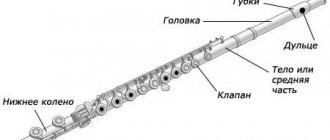What are repo transactions in simple words
The definition of REPO (accent is placed on the last syllable) was invented in the USA in 1917. It was then that the concept of repo was born. The country entered into a large-scale war. As a result, taxes increased and new forms of lending appeared.
What's the point? The seller sells material assets and subsequently buys them back after a specific period. Its benefit is that it receives the required amount of money at a certain moment. The benefit for the buyer is receiving interest for the transaction. At the same time, the risk is minimal. If the seller does not return the money for the securities, the buyer will be able to sell them himself and remain in the black.
Hurry up to take advantage of the doubling of the tax deduction until December 31, 2022.
Purpose of Operations
To receive finance in the shortest possible time and without paperwork is the main goal of repo transactions. The buyer does not need to confirm his solvency and collect certificates. The procedure is completed using one document.
Firms operate repos to generate quick income using “hot money”—capital that can easily be moved from one financial asset to another. Other businesses are using deals like this as a chance to enter the stock investment market soon.
A private investor makes money on the difference between buying and selling assets.
Legal and tax regulation
Control is exercised by the Ministry of Finance, the Federal Service for Financial Markets and the Tax Service. The circumstances, rights and obligations of persons, fines for violations are prescribed in the Federal Law “On the Securities Market”.
Fund market players have formed a sample agreement for repurchase transactions. It takes into account world and Russian practice.
As for tax regulation, it is no different from standard transactions with financial instruments. However, accounting for repo transactions must be kept separately.
Note! Tax is levied only on profits. In case of losses, the difference goes to the general account for investment activities. However, if a legal entity makes transactions on its own issues, then a different taxation system is used.
All REPO transactions are executed in domestic currency. The type of material benefits can be independently established by the parties to the contract. Shares can be acquired by exchanging them between different firms.
The role of the Russian Repo Board
The REPO association in the Russian Federation was formed in 2006. The Central Bank set out to formalize such operations at the legislative level. But today REPO transactions are not separately specified in the Tax Code of the Russian Federation. A clause concerning the establishment of interest tax is highlighted for them.
The securities market is a tempting field for investments; repo transactions are not uncommon on it. Therefore, it is expected that in the future the state itself will act as the regulator of operations.
The Central Council of Repo of Russia operates as a private social association and is not registered as a legal entity. The RSR's regulations also do not provide for contributions from its participants.
Method of ensuring the fulfillment of an obligation
There are 2 options to reduce risks and thereby ensure compliance with the terms of the contract: discount and compensation contributions.
What is a discount? I propose to look at it using a simple example. One party needs money to open their own business for a period of 1 year. At the same time, a person has a house that is valued at 1.5 million rubles, and he can, without harm to himself, transfer it into the possession of another person for the same period.
The second party is ready to lend the required amount at 10% per annum. But a person does not want to take risks, and to complete a transaction he needs material support.
The two parties formalize the repo procedure and specify the terms of the agreement:
- A person sells a house for a million rubles and undertakes to buy it back a year later - a direct transaction.
- The second party buys the house with the condition of resale for 1,100,000 rubles. The amount includes 10% per annum. It's a reverse deal.
Thus, both parties receive what they need: one - money to open a business, the other - income in the form of interest. The risk for the second party is minimal, because even if the seller violates his obligations, the buyer will still have property worth 1,500,000 rubles.
In this example, the house was originally sold at a reduced price - 1 million instead of 1.5 as a guarantee that the first party would want to buy it back. The benefit between the true cost of the house and the transaction amount - here it is 500,000 rubles - is called a discount.
How is its size determined? Reliability and liquidity. If we talk about “blue chips”, then the premium for them will be lower than in transactions with second- and third-tier securities.
Another method of securing obligations (in addition to discounting) is compensation contributions. They are beneficial for long-term operations. Let's imagine that two people have executed a repo transaction for several years, the object of this transaction is shares.
After some time, the asset increased in price significantly. The seller loses profit because... he could sell them at a higher price. Because of this, he has the right to receive material compensation or part of the shares.
In the opposite situation, when Lukoil shares become cheaper, this will be disadvantageous for the buyer. After all, he paid more for them than they were worth. Accordingly, it will not make sense for the seller to buy them back. Therefore, the buyer can also request compensation.
How are the contributions determined? The real difference between what the shares were worth at the time of signing and what their price became after a certain time.
It is important that if any party to the contract violates its terms of compensation, the deal will be closed on the next day the bank works.
REPO on the exchange
Repo transactions are very common in the securities market. They reduce the risks of lending to exchange traders, investors and issuers. The speed of securities turnover increases, liquidity on the stock exchange increases, thanks to the influx of funds from brokers.
Traders and investors who do not have sufficient capital have the opportunity to use short-term credit facilities and make a profit.
Expert opinion
Dmitry Dunyashev
Blogger, private investor, project manager real-investment.net
Repo transactions use the effect of financial leverage in exchange trading. The borrower is a broker or financial institution (bank).
Order of Operations
The broker must have a license from the Bank of Russia to conduct relevant operations, that is, be a professional participant in the securities market. REPO operations are carried out on the exchange as follows:
- The trader (to obtain the securities he needs for trading) transfers the initial margin to the broker, which guarantees his solvency. The broker provides securities in return, which in turn can be borrowed from another broker. This system is very common, for example, when trading oil futures, when many similar operations are performed per day.
- If a trader plays to reduce quotes, then he instructs the broker to sell securities of the required type in order to later buy them back at a lower price. When rolling over an open position to another day, the broker charges the trader an amount based on the current interest rate.
- After successful closing of the transaction, the broker calculates the profit for the trader and retains commissions for the services provided. In case of an unsuccessful transaction, a “margin call” situation occurs when the broker demands funds from the trader to cover losses.
The broker has the right to forcefully collect the missing funds from the trader.
With a clearing certificate of participation (CCP)
The GCC is issued by the National Clearing Center (NCC) to simplify relationships on repo transactions.
A clearing certificate of participation (CCP) is a security that guarantees both parties to fulfill their obligations under a transaction. The bottom line is that when using GCS, securities are not sold to the buyer, but are transferred to NCC for storage. This ensures that the security owner does not lose control of the stock or bond.
REPO transactions with GCC
This allows you to vote or receive income from securities. This leads to an expansion of the client base for repo transactions and an increase in overall liquidity in the market. The lender, in turn, receives guarantees from NCC for the successful completion of the transaction.
Read more about repo transactions with GCC on the NCC website
With a central counterparty (CCP)
The National Clearing Center is the central counterparty (CCP) on the Moscow and other exchanges.
REPO with CCP
To carry out REPO transactions directly with NCC, you must have a good financial reputation and be a bona fide trading participant. Since the assets of the Central Committee are huge, it is safe and profitable to enter into transactions with it. The procedure for concluding transactions is no different from transactions with brokers in this case.
Kinds
REPO transactions are distinguished by execution methods:
- Direct. Sale with the need for buyback.
- The opposite. Acquisition of assets with mandatory resale in the future.
There are other types of transactions:
- Committed within one day. Purchase and sale and repurchase occur within 24 hours.
- Overnight. Translated it means “through the night.” This is when one part of the transaction is performed on one day, and the other on the next.
- Active. When only one part of the transaction is completed - direct.
- Open. The completion date of the transaction has not been fixed.
- Exchange. The subjects of the transaction act according to the rules of the exchange - it acts as a guarantor of compliance with obligations.
- Over-the-counter – are issued between the parties, bypassing the exchange.
- Tripartite. The fulfillment of obligations is controlled by a third party.
- Transactions with the Central Bank - when one of the participants is the Central Bank of the country.
- Interdealer. Subjects of the contract are dealers.
- True. The deal is finalized only upon signing the general agreement.
REPO in banking
The Central Bank of the Russian Federation regulates the country's monetary system, including through repo operations.
Commercial banks turn to the Bank of Russia for credit resources, which are used to cover current needs and increase liquidity. The cash supply is issued to banks at interest, which is based on the discount rate of the Central Bank. Money is issued at special auctions for a period of 1 and 7 days, as well as for a period of 3 or 12 months.
Scheme of conducting operations on repo transactions not at organized trading with the participation of the Bank of Russia
The Bank of Russia also conducts reverse repo operations, accumulating available funds of banks with an obligation to return them in the future. In this way, the level of inflation and the investment component of the economy are regulated.
Repo auction fine tuning
Fine-tuning auctions are held by the Central Bank when there is insufficient liquidity in the banking sector. To achieve this, money is injected through commercial banks into the country's economy. Thus, in March 2022, 500 billion rubles were transferred to banks through repo auctions.
Main elements of auctions:
- banks provide the Central Bank with their own or third-party securities recognized by the central regulator as acceptable;
- The Central Bank issues funds to banks that offer the best conditions for the periods specified above;
- Upon completion of the transaction and after the return of funds, the Bank of Russia charges interest;
- securities are returned to banks.
Currency transaction
Banks can carry out repo transactions on the interbank market in dollars, euros or other foreign currencies.
Features of such transactions:
- the market value of ruble securities is recalculated daily in dollars or euros at the exchange rate of the Central Bank of the Russian Federation;
- payments in the form of compensation are paid taking into account changes in the official exchange rate;
- compensation contributions are made in foreign currency;
- The reverse part of the transaction is paid in rubles at the current exchange rate.
If coupon income is paid to holders of securities in rubles, then the repo amount is reduced by the corresponding amount in foreign currency according to the Central Bank exchange rate.
Pyramids
Thanks to repo transactions, some market participants, if abused, can create financial pyramids. The most famous story is the Lehman Brothers repo transactions in the United States. This largest investment bank, during the financial problems of 2008, entered into many repo transactions, the volume of which was many times greater than its assets.
Formally, rating agencies assigned it good indicators, but in reality the bank “collapsed,” which caused a chain reaction in the US banking system and in the mortgage lending market.
Essential terms of the repurchase agreement
The Federal Law “On the Securities Market” talks about those clauses of the contract that need to be negotiated by the parties:
- Assets transferred under the agreement. Approval of the entity that issued the securities, their type, quantity, category.
- Price.
- Payment period. The time limit must be expressly agreed upon. Fulfillment of the conditions under the second part of the contract can be established by the moment of demand.
- The period for fulfilling the conditions for the transfer of assets. The term for a reverse transaction can also be determined by the moment of demand.
Object and form of the agreement
The object can be:
- assets of a domestic issuer;
- investment shares managed by the Russian Criminal Code;
- bonds, shares of a foreign issuer.
The opportunity to negotiate the terms of the contract is provided when drawing up a general agreement if the entities are ready to continue cooperation. Such a document may include the circumstances and manner of payment of money and transfer of assets, as well as the reasons and conditions for terminating obligations.
Subject composition
The parties to sign a repo contract are limited. At least one of the parties to the transaction must be:
- dealer;
- broker;
- depository;
- manager;
- a company providing clearing services;
- lending institution.
One of the conditions for the validity of a contract is that the contract is concluded by a broker at the expense of a private individual.
Rights and obligations of the parties
The buyer transfers to the seller the same shares and in the same quantity that he purchased. The contract may also include the right to insist on the transfer of other assets in place of those received. This privilege can be used only when the first part of the operation is completed. Accordingly, new securities will need to be returned.
The seller may also have the right to replace shares on the same terms as the buyer. The final settlement of the reverse repo transaction in both cases will be made on new assets.
The legislation also defines the right to prohibit the buyer from conducting any transactions with the purchased securities. His account will be limited for such actions.
General agreements for repo transactions
The document involves the execution of a repurchase agreement. It includes all circumstances determined by the self-regulatory organization.
Since 2011, one General Repurchase Agreement has been in force throughout the country. It applies to the entire fund market and has been discussed with the Federal Service for Financial Markets. Such transactions are also regulated by the Model Terms of Repurchase Agreements on the country’s financial market.
In case of discrepancies in the norms of the General Agreement with the Sample Terms, the paragraphs of the first document take precedence. If a specific repo contract contradicts the agreement, then the requirements of this transaction will take precedence.
A master agreement gives the parties a choice in determining their rights and obligations. Entities can independently decide whether the document has retroactive effect, and whether the ordering of each repo transaction or only those where there is a direct reference to the agreement will apply.
In this case, counterparties must determine:
- An indication of the application of the Sample Conditions to the relationships between subjects.
- The legal status of the parties is on whose behalf and at whose expense they act.
- Rules for execution of repo contracts.
- Essential provisions of the agreement.
- The procedure for fulfilling the conditions.
- Opportunity to re-evaluate.
- Resolving disagreements.
Execution of the repurchase agreement
As soon as the shares are transferred or credited to a personal account or securities account, the requirement for the transaction is considered fulfilled. If a clearing firm, depository or exchange trader is involved in a repo transaction, then they can also regulate the execution of the terms of the agreement.
The Federal Law “On the Securities Market” includes rules describing the situation when, after fulfilling obligations after a direct transaction, circumstances became different.
The buyer must return to the seller the material assets given by the issuer within the agreed period. This is possible after fulfilling the conditions for a direct transaction and before fulfilling the obligations for a reverse transaction.
The document may stipulate rules for reducing the value of assets taking into account a certain amount. Note! When converting shares, the converted securities are returned to the seller.
If the value of assets changes - it becomes more or less than the value agreed in the contract, then the obligation under it may cease.
Termination of the contract is also possible if one of the conditions specified in the Federal Law “On the Securities Market” appears.
Early execution
A reverse repo transaction may be completed ahead of schedule if one entity fails to fulfill obligations to another or if the clauses of an agreement concluded with third parties are violated.
The contract may be terminated early in the following cases:
- The buyer transferred material assets - money or other property. Moreover, their amount is equivalent to the difference between the value of the assets of the buyer and the seller.
- The seller transferred material assets. The case is the opposite of the previous one, but here there will be a difference between the value of the securities of the seller and the buyer.
- The requirements are not met by each of the parties, while the value of the assets is equal.
A penalty may also be taken into account here.
What factors influence the formation of a participant’s additional income from overnight
Several factors have a key impact on determining the amount of remuneration:
- type of security. Shares are in demand. There are practically no requests from online brokers for overnight bonds and other securities;
- "quality" of shares. Securities included in the “blue chips” (for example, Sberbank, Gazprom) are much more often used overnight.
The difference between a repo transaction and other business agreements
A repo contract can be represented as two independent transactions under a purchase/sale agreement. Indeed, there is an analogy here. However, in this case, as they say, buy it and forget it. And in REPO subjects are burdened with bilateral obligations.
Differences from the pledge agreement
In a collateral contract, after ownership has been transferred and all payments have been made, the parties may change their minds about entering into a transaction under the second contract. They are not in danger for this. But obligations under a repo contract are regulated more strictly.
In the event of failure to comply, the pledge agreement also provides for the sale of securities at auction. Under a repurchase contract, the parties are exempt from this, because the rights to the assets already belong to the creditor.
Differences from securities lending
I’ll tell you the difference “on your fingers”:
- Collateral assets do not become the property of the bank. In a repo, everything is different.
- Only a bank can give you a loan secured by shares. Any fund market participant is entitled to carry out a repo.
- The interest rate at the bank may be less favorable than under a repurchase agreement.
- The bank issues a loan only in money, but here there can be an exchange not only in money, but also in assets.
Differences from a swap contract
A repo is a type of swap contract. I propose to note the main differences:
- In a repo, the purchase and sale prices of assets are agreed upon in advance. In a swap contract, at least one price remains unknown at the time the contract is executed.
- In a repo, assets are actually exchanged for money and then returned. In a swap, such an exchange is not made. Here, one party pays the other the difference between the agreed price and the actual price established at the time of settlement.
Nuances and features of the contract
REPO transactions are regulated by Article 454 of the Civil Code of the Russian Federation and the law on securities market. According to the Civil Code, they constitute a purchase and sale agreement and are considered accordingly in arbitration courts. The income for the buyer is the discount amount or the amount of the difference between the market value of securities or other assets and the sale price in a direct transaction.
If the second part of the transaction falls through and the buyer himself sells the assets on the market, then his income is considered to be the difference between the sale price and the amount paid to the seller in a direct transaction.
The amount of the discount is directly affected by the terms of the repurchase agreement. For short-term and medium-term transactions the rate is usually fixed; for open transactions a floating interest rate is used. The basis for determining interest is the Bank of Russia discount rate applied in the interbank market.
The vast majority of assets used are stocks, bonds, depositary receipts and other securities. REPOs can be either with blocking of collateral or without applying this procedure.
For repo transactions, special accounts are opened in which securities and cash flows are recorded.
There are operations in the inter-dealer transactions market:
- with confirmation, when the application of one dealer is confirmed by a counter document from another;
- without confirmation when the dealer is dealing with an issuer of securities or an investor.
Transactions are processed in accordance with the regulations of the Bank of Russia and exchange standards.
Transaction cost
The price is set by market conditions. The seller who takes money against the assets they own subsequently pays royalties on them.
At the same time, the cost of the operation depends on how much money is currently valued on the market. In our country, this is the percentage of the loan on the interbank loan combined with the remuneration for the value of the asset itself. The cost of the repo transaction is included in the asset in the reverse transaction.
Traders sometimes need certain financial instruments, and they are willing to pay an additional amount to their owners in order for them to transfer them. This most often happens with stocks when there are quite a lot of traders willing to short.
Then the holders of shares can use the repo operation to receive excess profits. The earnings are decent and can be compared with dividend income.
Taxes
On the territory of the country, REPO operations are also regulated by tax legislation - Art. 282 of the Tax Code of the Russian Federation. Article 214.3 applies to private individuals. After the successful completion of both parts of the contract, the profit or loss is considered a discount or consideration. Earnings from a repo are subject to standard tax. In case of losses from trading with shares, profits from transactions with the same assets are not balanced
.
If a repo transaction is compared with a familiar purchase/sale, it turns out that such transactions have advantages in the field of taxation and at the same time are an effective lending tool.
Taxation example
Company 1 entered into a repurchase agreement with company 2. Terms: securities are sold at a price of 150 thousand rubles. Six months later, the first company buys them for 164,250 rubles.
Let’s imagine that on the day the shares were sold they cost 150 thousand, and at the moment when they needed to be repurchased - 180 thousand. The difference between sales and buyback is 14,250 rubles. (164,250 - 150,000). This amounts to 18.9% per annum, which will be paid by company 1. In turn, for company 2 this is income. Therefore, the profit tax for the first organization becomes lower, and for the second – higher by 3,420 rubles. (RUB 14,250 x 24%).
Discount
When a seller sells his securities, he may sell them for less than they were valued at at the time of the transaction. For the buyer, this is a guarantee that the owner of the assets will want to buy them again. This is called a discount.
I discussed this method of ensuring the fulfillment of an obligation in more detail above using the example of a house.
Example deal
Examples of repo transactions have already been given above. For variety, let's give an example in foreign currency.
has on its balance sheet 200 shares of a European company worth €90,000. The currency contract requires funds in the amount of €100,000. The market value of the shares at the time of execution of the agreement is 130,000 €.
A currency repurchase agreement was concluded with the Business Development Bank in the amount of €100,000. The funds have been credited to the company's account. Conditions for fulfilling obligations under the second part: repurchase of shares for €120,000 after 10 months.
However, six months after the conclusion of the agreement, the market value of the securities decreased and amounted to 110,000 €. Which party will suffer losses in this case?
In fact, neither party will be left at a loss, and here's why.
The seller once purchased shares for €50,000, and in addition received the necessary funds. So here there is only lost profit, and even then this is a moot point - previously it would have been possible to sell the securities for 130,000 €, but the seller would have lost them forever. And so he got them back, albeit at a price below the market price.
The buyer paid 100,000 € for the shares, so he also did not lose money. But if the assets fell in price by half and cost €65,000, and the seller refused to buy them back, then the lender’s losses could amount to at least €35,000 (100,000-65,000).
Transaction risks
Let's talk more about risks. One entity suffers losses when another violates the conditions for repurchasing assets. Most often this is due to the market situation. If securities rise in price, then the one who purchased them can sell them profitably without transferring them back to the seller. In the opposite situation, when the value of assets drops, it will become unprofitable for the recipient of the loan to repurchase his shares.
Both options entail certain risks. However, if the securities are not redeemed, they remain in the possession of the buyer, and he can do with them what he wants. When, on the contrary, the other party did not fulfill the requirements of the contract and did not transfer the assets, the seller retains the money paid for them.
Risk management and discounting
To manage risks, when concluding a contract, the parties have the right to stipulate additional conditions - on bonuses and compensation payments. What does it mean? Inflating the price of assets over the amount issued.
In this case, the risks become minimal, but still remain, because there is a possibility that the value of the securities will fall even lower. It also happens that the parties initially agree on a reduced premium. In this case, the seller's risk is minimized.
Compensation contributions
The premium may change over time. Therefore, the longer the transaction period, the riskier it is. To manage risks, payments – compensations – are used here. I also spoke about them in more detail when I considered ways to ensure the fulfillment of obligations.
I will only add that this method became especially popular after the 2008 crisis, when players could not fulfill the requirements of the repurchase agreement.
Risks and options for reducing them
Any financial transaction involves risk. Even keeping money on deposit has this effect (for example, depreciation of the deposit due to the interest rate being too low). What can happen during a repo operation:
- Failure by the seller to fulfill the obligation to repurchase the securities sold. On the one hand, this risk is minimized by the fact that the buyer remains in possession of the asset. He can sell it and recover the lost money. But on the other hand, there is every chance of the following type of risk arising.
- A change in the value of an asset to a lower value. In this case, the buyer loses part of the money upon sale. To minimize this risk, it is advised to enter into transactions only with the most liquid assets, for example, these are considered “blue chip” shares. But we all observed (and continue to do so) the situation in 2022, when the quotes of many successful and large companies fell down and have not yet recovered. Among these issuers there are also “blue chips”. This brings up another risk.
- Time costs. Selling assets at the right price takes time. And 2022 showed that this may take more than one month.
Let's consider what options for minimizing risks are offered by the Central Bank of the Russian Federation.
- Discount
For each asset participating in a repo transaction, a discount is established taking into account its liquidity, credit quality and other parameters. For example, for blue chips it will be less than for securities from the second and third echelons. The seller sells the asset at a discount to the appraised price, which will guarantee the buyer to receive the money back in full.
- Compensation fee
If, before the execution of the second part of the contract, the securities have sharply increased in price, then the seller (if the contract is concluded on the terms of compensation payments) may require the buyer to pay compensation in money or securities. And, conversely, the seller will pay if stock prices drop sharply. The specific amount of compensation is determined as the difference between the sale price of the asset and its current value.
Repo pyramiding
This situation is typical with bonds. These securities are the most reliable, their value does not jump up and down, and the income on coupons can outpace the loan rate. At this time, market players are looking for opportunities to earn new income.
They purchase bonds and carry out direct repo transactions with them. They receive a certain amount for this, which is again invested in the same securities. Thus, they build a pyramid while the bonus on operations allows.
The margin can reach 1 to 20 or even 1 to 100. This means that for one unit of own money there are 100 units of bonds.
As soon as the market situation changes - the Central Bank's key rate rises or the overnight loan rate rises - the price of securities will fall. In this case, players will suffer significant losses, which is why repo pyramiding is considered high-risk.
Overnight at Tinkoff Bank
Using the example of a bank that was one of the first to provide overnight services, we can describe the specific conditions offered to borrowers. Tinkoff Bank cooperates in this area with legal entities, individual entrepreneurs, and individuals engaged in private practice.
At the same time, the bank offers only three separate tariff plans. Having studied their conditions, you can roughly estimate the possible profit. Each of them is designed for a specific category of investors.
Under the “Advanced” tariff plan, investors receive 2% per annum with a minimum amount of 100,000 rubles. The maximum deposit amount is 100,000,000 rubles. Valid overnight until 17:00.
The “Professional” tariff guarantees 4% per annum. The starting amount is 500,000 rubles. The maximum overnight amount is 100,000,000 rubles. Interest is accrued exactly until 21:00.
As part of the “Professional” tariff plan, depositors can activate the option of automatically placing funds on deposit. The annual overnight rate is 5.5%. The minimum deposit amount is 500,000 rubles. The maximum overnight amount should not exceed 500,000,000 rubles. Interest is calculated until 21:00. According to the tariff plan, you can activate a package of additional .
4.9 / 5 ( 22 voices)
about the author
Klavdiya Treskova - higher education with qualification “Economist”, with specializations “Economics and Management” and “Computer Technologies” at PSU. She worked in a bank in positions from operator to acting. Head of the Department for servicing private and corporate clients. Every year she successfully passed certifications, education and training in banking services. Total work experience in the bank is more than 15 years. [email protected]
Is this article useful? Not really
Help us find out how much this article helped you. If something is missing or the information is not accurate, please report it below in the comments or write to us by email
Advantages and disadvantages of repo transactions
Pros of the deal:
- In contrast to a bank loan, the conditions under a repurchase agreement are more favorable.
- The buyer's risks are minimal, because in which case the assets remain his property.
- The operation and payments for it occur quite quickly.
- Not subject to VAT.
- Documenting the transaction requires a minimum of time and effort compared to a purchase/sale transaction.
And now about the cons:
- A limited list of securities can be used as collateral.
- When drawing up a contract, the broker and the consumer impose specific obligations on themselves.
- Only those assets that have a limited loan amount can guarantee the execution of the transaction.
What can be a repo object
According to Article 51.3. According to the Securities Act, a repo transaction can be concluded for the following financial assets:
- shares of Russian residents;
- units of investment funds (UIF), the trust management of which is carried out by a resident of the Russian Federation;
- clearing and mortgage participation certificates confirming ownership of part of the property (clearing) or mortgage pool;
- depository receipts for shares of foreign issuers.
We will separately highlight Bank of Russia repos, which are used to maintain the liquidity of the banking system, microfinance organizations and provide loans secured by government treasury obligations. A list of shares of companies admitted to purchase and sale transactions, interest rates and auction dates can be found on the Central Bank website.
What are OTC REPO transactions?
These are operations carried out directly bypassing the exchange. Here, responsibility for fulfilling the requirements of the contract lies with the participants themselves. The coordinator on the over-the-counter market does not take part in this, unlike the exchange, which controls the fulfillment of obligations.
What's the point
Registration of over-the-counter repo transactions is similar to a loan secured by financial instruments. For a fee, a trader can quickly withdraw the required amount from his securities.
What is the benefit
Availability and speed of receiving money. There is no need to collect certificates confirming solvency. Anyone who owns assets has the opportunity to conclude a repurchase agreement.
For the buyer, the advantage is that the assets are not in his possession, but rather in his possession.
Mechanism for completing an OTS-REPO transaction
The first section of the operation. The seller sells assets to the broker. The price takes into account the initial discount, and the money is transferred to the brokerage account.
Second section of the operation. After an agreed time, the seller buys the assets back. The price takes into account the repo rate and term.
Returning to risks, I note that while the OTS-REPO transaction is in effect, the bank from time to time revaluates the value of securities. If they are reduced, the seller is notified of the need to add the missing amount. If he does not do this, then as soon as the assets reach a certain minimum, the broker can demand early termination of the contract.
Extension and early execution
Prolongation of an OTS-REPO operation implies the execution of a new transaction at the initiative of the seller, and obligations for both operations in the program are also taken into account. The extension can be any number of times if, after closing the first part of the new transaction, the amount in the brokerage account is sufficient for the second part.
The seller can perform the transaction ahead of schedule one week from the date of its execution. The basis may be a stop out when the value of assets falls below a certain level. The reason for completion ahead of schedule will also be the actions of the issuer, which may affect the decrease in the price of assets or their withdrawal from circulation.
Basic conditions
Operations can be carried out if the amount of the first part is greater than or equal to 400 thousand rubles. The seller can set any transaction period from 7 to 105 calendar days.
The one who gives the loan does not go through standard lending procedures. And those who borrow money against assets cannot take advantage of the yield on securities.
Tax
The transfer of assets under security is not subject to tax. But you must pay interest on profits from the sale of securities.
Tax benefits
The Tax Code provides for preferential taxation compared to the usual purchase and sale of securities, and this helps reduce the tax burden. Here are three typical examples in which a repo transaction is used:
- Deferment of income tax payment . According to Article 282, after the first transfer of shares, tax obligations do not arise, which allows you to defer its payment for a maximum of a year.
- Payment of interest on foreign loans. The scheme works if the payment is made to a jurisdiction that has an agreement with the Russian Federation on the avoidance of double taxation, for example Cyprus.
- Improved financial reporting (EBITDA). The information is used by investors, banks and owners to assess the company's performance and is calculated based on accounting data (more details - EBITDA indicators). Unlike tax accounting, accounting does not establish any mandatory requirements for repo and can be carried out as two consecutive financial transactions of purchase/sale of securities. If the first part is carried out at a price higher than the accounting price, income will be shown in accounting, unlike tax accounting. Thus, we improve EBITDA data without increasing tax payments.
Bank lending to legal entities through repo transactions
Various companies often find themselves in situations where they urgently need certain amounts. In this case, bank lending comes to the rescue, because repo is one of its types. The main goal of the company is to increase funds for turnover or spend money on urgent needs.
REPO is a relatively simple and fast way to receive money. It is not necessary to create a bank account, and the transaction amount can reach 90% of the asset price on the market. The transaction is possible for one day, and Russian banks, as a rule, do not charge additional commissions when drawing up such a contract.
Standard lending terms
A bilateral repo contract is drawn up, which specifies all lending requirements and takes into account the expected risks.
Standard conditions include:
- the loan can be issued in any currency;
- loan amount from 400 thousand rubles;
- interest rates from 13 to 21% per annum;
- the period varies from 1 to 105 days.
The object may be assets of domestic and foreign issuers. To decide to issue money to a bank, two conditions are sufficient: the age of the enterprise is at least 1 year and the territorial proximity of the company to the bank or its branches.
Example
The company has 10,000 shares, each of them is valued at 10 rubles. A person is ready to buy them for 7 rubles, i.e. with a 30% discount. The seller needs money, and he is ready to sell his own securities with the requirements and receives 70,000 rubles for them.
When drawing up a contract, the buyer undertakes to sell back the securities in six months, including 10% per annum in the price.
Upon fulfillment of obligations, the seller will buy back his own assets for 7 rubles 35 kopecks. The total amount will be 73.5 thousand rubles.
What are the advantages of overnight
Overnight is an extremely effective tool for increasing the assets of a legal entity. The mechanism works on the principle of a standard deposit, only in this case the company can place all its assets for one night and remain in the black .
To more clearly explain the principle of overnight operation, we need to give an example. As a rule, most legal entities do not work on weekends. The same applies to the night time - from 20:00 until the morning, the company’s accounts stand idle. During this time, the company does not make a profit and its funds are free from any obligations. Thanks to overnight, money can work even at night, bringing relatively good profits. It all depends on the amount of funds deposited.
Understanding this circumstance, the company does not want accounts to stand idle, and places an overnight bank account for one night or a weekend. The next morning the money will be returned by the bank with interest accrued on it. Thus, even at night, the money of the conditional company will work and make a profit. This service is very useful in the following cases:
- The company does not have enough funds to conclude an urgent but very profitable deal.
- The company cannot deposit its assets for a long time, as this will deprive it of the opportunity to make transactions and simply work.
- To register overnight, you will need minimal documentary support.
This is what the service is based on: in one night, the bank can conclude several profitable deals at once using funds received from the client overnight. And the investor himself receives money with a profit, the size of which depends on the amount and interest rate.
Repo market of the Moscow Exchange
The Moscow Exchange trades on the stock, derivatives, foreign exchange and money markets. The latter includes REPO operations. The turnover in such a market is about 1 trillion rubles versus 3–4 trillion of the total.
Professional players – legal entities and credit organizations – trade on the Moscow Exchange. Private traders can receive information and make decisions. It is the money market that determines the current value of a currency. The trader has the right to use brokerage lending secured by assets and margin trading.
Features of taxation
The definition of the tax base, the features of its calculation, and the consideration of various situations during repo operations are discussed in great detail in Art. 282 of the Tax Code of the Russian Federation. This article widely uses language from the RCB law and the Civil Code. Situations when the percentage changes during an ongoing operation, cases of downward or upward trading on the stock exchange, and taxation of direct and reverse transactions are considered.
What should a client expect?
Studying the offers of brokers, one can draw a disappointing conclusion for the user: the interest rates for overnight transactions are meager. In most cases they are 0.1–0.2%. Some brokers have no remuneration for such operations at all.
Constant recommendations from experts to carefully study the contract will help the client save himself from unjustified risk. If you do not want to provide your assets to the broker for overnight, the user has the right to take the following steps:
- Send to the broker a statement prohibiting the use of overnight transactions.
- Disable the option in your personal account.
Choosing a broker to get profitability in the markets
To obtain profitability in the markets, you must first open a trading account with one of the brokers . According to the Masterforex-V Forex Academy broker rating, only 12 companies are included in the major league of recommended brokers.
| Broker name | Year of foundation | Trading instruments | Licenses | |
| 1. | NordFX | 2008 | currency pairs, commodity futures, stock indices, cryptocurrencies, stocks | CySEC, MiFID |
| 2. | Swissquote | 1996 | commodity futures, currency pairs, stock index futures, cryptocurrencies, metals, ETFs, warrants, shares | FINMA, FCA, SFC, Dubai FSA |
| 3. | Dukascopy | 1998 | stock indices, commodity futures, currency pairs, stocks, bonds, ETFs | FINMA, FCMC |
| 4. | Alpari | 1998 | metals, energy, indices, currency pairs, cryptocurrencies | — |
| 5. | FxPro | 2006 | indices, commodity futures, stocks, currency pairs | FCA, CySEC, FSB, Dubai FSA, BaFin, ACPR, CNMV |
| 6. | Interactive Brokers | 1977 | stocks, bonds, derivatives, currency pairs, forward contracts, bills, warrants, options, stock indices, currency and commodity futures | NFA, CFTC, FCA, IIROC |
| 7. | Oanda | 1996 | bonds, stock indices, currency pairs, commodity futures | NFA, CFTC, FCA, IIROC, MAS, ASIC |
| 8. | FXCM | 1999 | currency pairs, stock indices, commodity futures, cryptocurrencies | FCA, BaFin, ACPR, AMF, Dubai FSA,SFC, ISA, ASIC, FSB |
| 9. | Saxo Bank | 1992 | currency and commodity futures, stock indices, currency pairs, ETFs, stocks, bonds, derivatives | Danish FSA, Consob, Czech National Bank, Bank of the Netherlands, ASIC, Monetary Authority of Singapore, FINMA, Bank of France, Central Bank of the UAE, Japanese Financial Services Agency, Securities and Futures Commission in Hong Kong. |
| 10. | FOREX.com | 1999 | currency pairs, stocks, stock indices, commodity futures, cryptocurrencies | NFA, CFTC, FCA, ASIC, JSDA, MAS, SFC |
| 11. | FIBO Group | 1998 | metals, energy, currency pairs, commodities, cryptocurrencies, indices | CySEC |
| 12. | FINAM FOREX | 1994 | currency pairs | Bank of Russia |
A list of the remaining 200 brokers of the 2nd and 3rd leagues with a complete dossier for each of them can be found in our broker rating. When trading through a broker, a trader manages financial assets through his personal account. Having activated on the partner’s website, he selects a financial instrument, volume and amount, and indicates the timing of opening and closing a transaction.
Sincerely , wiki Masterforex-V - free (school) and professional Masterforex-V training courses for working on Forex, stock, futures, commodity and cryptocurrency exchanges.
REPO and Bank of Russia
The Bank of Russia regularly compiles a list of securities that are accepted under repos.
Where repo operations are carried out:
- St. Petersburg Currency Exchange;
- Moscow Exchange;
- unorganized trading using the Bloomberg information system.
Parameters for repo transactions established by the Bank of the Russian Federation:
- contract time,
- interest rate,
- dates of sale and redemption.
What securities are accepted under REPO:
- bonds of the Ministry of Finance of the Russian Federation;
- bonds of the Bank of the Russian Federation;
- bonds of constituent entities of the Russian Federation and municipal (for example, Moscow, Belgorod region, Krasnoyarsk Territory);
- mortgage-backed bonds (for example, JSC Mortgage Agent VTB 2014, PJSC ROSBANK);
- securities of legal entities - residents of the Russian Federation (for example, ALFA-BANK JSC, Rosselkhozbank JSC, Tinkoff Bank JSC);
- ... non-credit organizations (for example, Russian Helicopters JSC, VEB-Leasing JSC, DOM.RF JSC, Gazprom Neft PJSC, Gazprom PJSC, MMC Norilsk Nickel PJSC);
- ... having state guarantees of the Russian Federation (for example, JSC "Main Road");
- … international financial organizations (eg, Eurasian Development Bank);
- ... non-residents issued outside the Russian Federation (ALROSA Finance SA, Eurasian Development Bank, European Bank for Reconstruction and Development, Lukoil International Finance BV).











